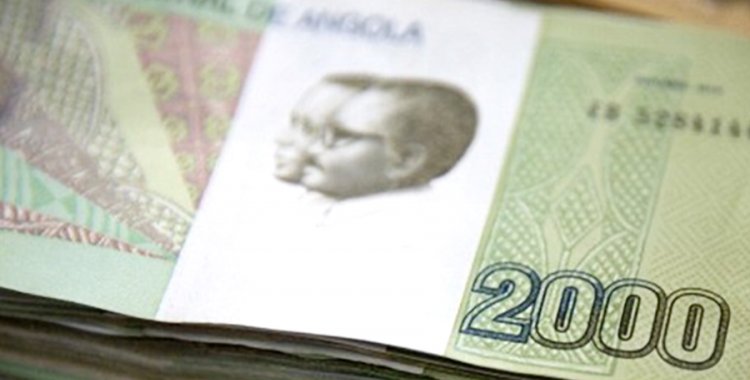At the press conference to present the quarterly results of Caixa Geral de Depósitos (CGD), on 13 May, the executive chairman of the Portuguese public bank, Paulo Macedo, praised the exchange rate liberalisation process, noting that "capital movements and foreign movement cannot be achieved without some kind of liberalisation", and also welcoming Luanda's "very ambitious privatisation programme".
"No one is going to invest in Angola unless they have guarantees, apart from security issues, and they also need to know that the amounts invested can then be paid out, either through dividends or repatriation, and therefore this step seems to me to be essential," said Paulo Macedo, who acknowledged the "great volatility due to the exchange rate issue.
CGD's operation in Angola, through Banco Caixa Geral Angola (51 percent owned by Partang, which is 100 percent owned by CGD) contributed four million euros to the profits of 86.2 million euros recorded by the Portuguese public bank in the first quarter of 2020.
Miguel Maya, BCP's executive chairman, at the press conference to present the bank's results on 19 May, also noted that "structural measures of the greatest relevance to the sustainability of the economy and the regular functioning of institutions have been implemented.
The situation in Angola "is very affected by the price of oil, which is now recovering something but was very marked", and that the results of BCP's operation in Angola (a 22.5 percent stake in Banco Millennium Atlântico) "are very impacted by that" (a contribution of 1.4 million euros to the quarterly profits of 35.3 million euros).
Thus, according to Miguel Maya, BCP is "following what's happening very regularly", but with the "tranquility" of only holding 22.5 per cent of a bank, being therefore "a more limited exposure, unlike Mozambique" where BCP holds 66 per cent of BIM.
An official source of BPI, which holds 48.1 percent of Banco de Fomento Angola, told Lusa that "the evolution of the economic situation in Angola does not involve surprises, either in its structural context, or in the specific effects of the pandemic, which affect the global economy and cannot fail to be reflected in the Angolan reality as well.
"BFA is a strong and highly capitalised bank, it has resisted the adverse economic situation well and is prepared to face the difficulties that are anticipated," said the same source, adding that "since 2019 BPI's participation in BFA has been accounted for as a financial investment," and that the Portuguese bank has not participated in BFA's management since 2017.
BPI, which recorded a profit of 6.6 million euros in the first quarter of 2020 (with a negative contribution of 1.2 million euros from BFA), also stated that with regard to the European Central Bank's recommendation to reduce its participation in BFA, "there are no developments in this situation".
Analysts of the sector contacted by Lusa are concerned with the economic situation of Angola, namely with the price of oil, and with the exchange rate prospects and the impact this has on Portuguese banks with operations or connections to the country.
According to Nuno Caetano of Infinox, the devaluation of the kwanza has a negative effect on Portuguese banks and even those who manage to improve the results of operations in the country may be penalised in the consolidation of accounts by the devaluation of the Angolan currency. "Obviously it is worrying for the banks that have operations in Angola," he said.
One of the impacts is on the debt that the banks contract in dollars or euros and that the currency devaluation of the kwanza affects, in addition to the fact that exchange protection mechanisms become difficult in the context of currency volatility.
"I believe that at the local level there is an attempt to put some pressure on the government or the central bank to create stability," he said.
Already questioned about the possibility of banks trying to reduce operations in Angola, in this context, Nuno Caetano admitted that even due to the increasing disparities that banks will have to create in the face of the crisis triggered by covid-19 some banks may decide to divest holdings abroad and in the case of Angola the currency may be a specific constraint that contributes to that decision.
For his part, Filipe Garcia, of IMF - Financial Markets Information, considers that the main factor conditioning the operations of Portuguese banks in Angola are the country's economic prospects.
And if the outlook was no longer favourable before March, it worsened with the crisis unleashed by covid-19, which paralysed economic activity and further penalised oil prices. The official exchange rate has already depreciated about 20 per cent this year.
However, the most structuring factor is the price of oil, which conditions the country's economic evolution.
"What seems to me most worrying for the banks with links and operations in Angola are the medium and long term economic prospects. Without oil prices at least double the current levels it will be difficult to see the economy reaccelerate," he said.







